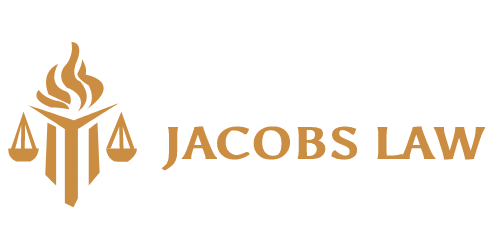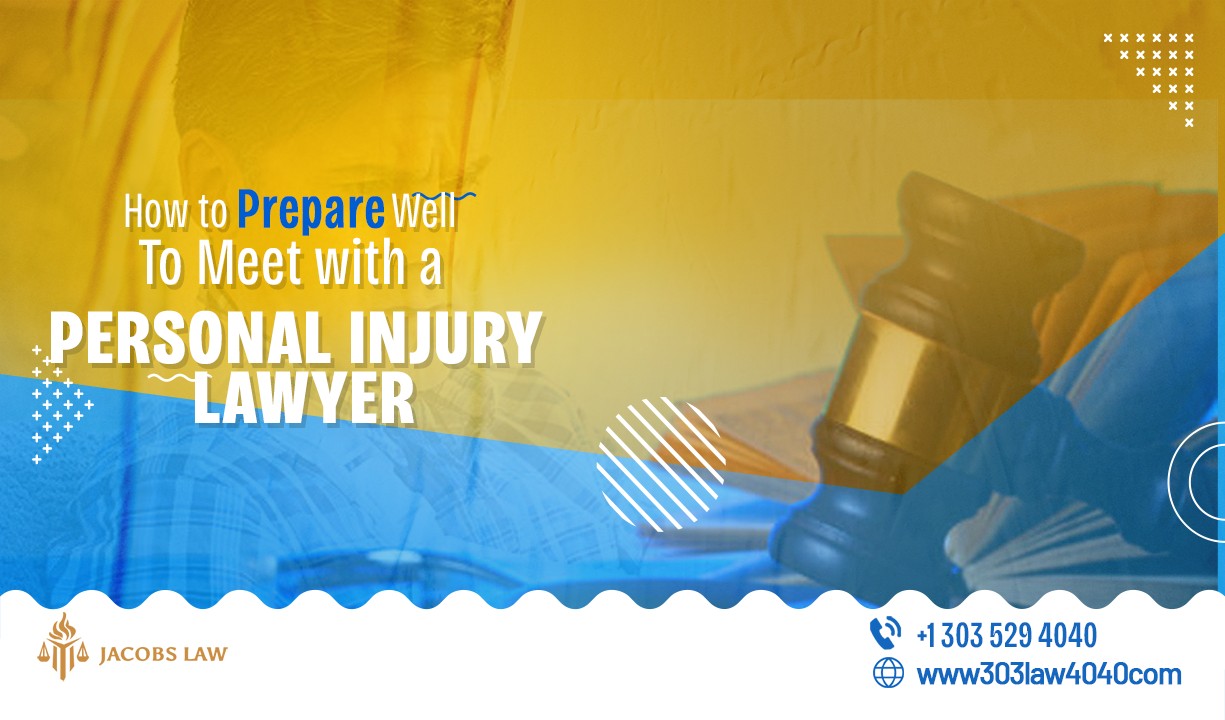Personal injury lawyers play an important role in the legal system, representing individuals who have suffered physical, emotional, or financial harm due to the negligence or intentional actions of others. Their primary goal is to help their clients obtain fair compensation for their injuries, whether those injuries are caused by car accidents, slip and falls, medical malpractice, product liability, or any other situation where someone’s negligence or wrongful conduct caused the injury.
We’ll dive deep into the world of personal injury lawyers, exploring their roles, responsibilities and how they can help you seek justice and compensation for your injuries. We will also discuss the necessary steps to take to prepare for your meeting with a personal injury attorney, ensuring that you get the most out of this important initial consultation.
Role of Personal Injury Lawyer
To truly appreciate the importance of personal injury lawyers, it is essential to understand their extensive and multifaceted role within the legal system. Here are some of the primary responsibilities and duties of these legal professionals:
Legal Advocacy: Personal injury lawyers work as advocates for their clients. They work to protect your rights and interests throughout the entire legal process, from initial consultation to final settlement or trial.
Case Evaluation: The first job of a personal injury lawyer is to evaluate the merits of your case. They will assess the evidence, interview witnesses, and review medical records to determine whether you have a strong legal claim.
Legal Expertise: Personal injury lawyers are well-versed with the applicable laws and regulations related to personal injury cases. They understand the nuances of the legal system and can guide their clients through the complex web of rules and procedures.
Negotiation Skills: Many personal injury cases are resolved through settlement rather than going to trial. Lawyers play a vital role in negotiating with insurance companies or opposing parties to ensure the best possible outcome for their clients.
Representation in Court: If no agreement can be reached, personal injury lawyers will represent their clients in court. They will make a compelling case, present evidence, and advocate for their client’s rights before the judge and jury.
Emotional Support: Dealing with a personal injury can be emotionally difficult. Personal injury lawyers often provide emotional support to their clients, helping them deal with the stress and uncertainty of their situation.
Resource Management: In many cases personal injury attorneys work with a team of experts, including medical professionals, accident reconstruction experts, and investigators to build a strong case. They manage these resources to strengthen their clients’ claims.
Ensuring Fair Compensation: Ultimately, the goal of a personal injury lawyer is to secure fair compensation for his or her clients. This compensation can cover medical expenses, lost wages, pain and suffering, and other damages resulting from the injury.
Types of Personal Injury Cases
Personal injury lawyers handle a wide range of cases, each with its own circumstances and its own unique set of legal considerations. Some common types of personal injury cases include:
Car Accidents: This category includes accidents involving automobiles, motorcycles, trucks, and other vehicles. These cases often involve issues of negligence, such as distracted driving, speeding, or driving under the influence.
Slip and Fall Accidents: These cases usually occur on another person’s property, where a dangerous condition such as a wet floor or a damaged ladder causes injury.
Medical Malpractice: In medical malpractice cases, individuals suffer harm due to the negligence or incompetence of a healthcare provider such as a doctor, nurse, or hospital.
Product Liability: When a defective product causes injury, personal injury attorneys can help victims file a claim against the manufacturer, distributor, or retailer.
Workplace Injuries: Injuries that occur on the job can lead to workers’ compensation claims, but in cases where a third party’s negligence is involved, a personal injury attorney may also be needed.
Premises Liability: These cases involve injuries on someone else’s property caused by dangerous conditions, such as inadequate security, improper maintenance, or failure to warn of hazards.
Wrongful Death: When one person’s negligence results in the death of another, surviving family members may file a wrongful death claim to compensate them for their losses.
Dog Bite: If dogs harm others, their owners may be held liable for the actions of their pets. Personal injury lawyers can help victims of dog attacks get compensation.
Choosing the Right Personal Injury Lawyer
Now that we have a better understanding of the roles and responsibilities of personal injury lawyers, the next step is to choose the right lawyer to handle your case. Here are some essential factors to consider:
Experience: Look for an attorney with a proven track record in personal injury cases. Experience matters, as these matters can be complex and nuanced.
Specialization: Personal injury law is a specialized field. Make sure the attorney you select has expertise in the specific type of case you are dealing with, whether it’s a car accident, medical malpractice, or premises liability.
Reputation: Check online reviews, ask for referrals, and research the attorney’s reputation in the legal community. A positive reputation often reflects a lawyer’s commitment to his or her clients.
Communication Skills: Effective communication is essential to any attorney-client relationship. Decide a lawyer who can explain legal concepts in a way that you can understand and who responds promptly to your questions and concerns.
Fee Structure: Understand the fee structure of a lawyer before you hire him. Most personal injury lawyers work on a contingency fee basis, meaning they only get paid if you win your case. Be clear about what percentage they will take as their fee.
Resources: Assess the attorney’s resources and networks. Do they have access to experts and investigators who can strengthen your case?
Location: Choose an attorney who practices in the jurisdiction where your injury occurred. Local lawyers are often more familiar with local laws, judges, and court procedures.
Initial Consultation: Take advantage of an initial consultation to assess your comfort level with the attorney. This meeting is your opportunity to discuss your case and learn whether you have confidence in their abilities.
Preparing for Your Meeting with a Personal Injury Lawyer
Once you have selected a personal injury attorney, it is time to prepare for your initial meeting. This is an important step toward building a strong attorney-client relationship and laying the foundation for your case. Here’s how you can prepare for this important consultation:
1. Organize Your Documents
Gather all relevant documents related to your case. This includes medical records, accident reports, witness statements, photographs of the scene, correspondence with insurance companies, and any other evidence that may support your claim. Having these documents organized and easily available will help the attorney assess the strength of your case.
2. Document Your Memory of The Event
Before your meeting, write down your memories of the event. Include as many details as possible, such as time, date, location, weather conditions, and the sequence of events leading up to the injury. Your memory of the event may fade over time, so it’s important to document it as accurately as possible while it’s still fresh in your mind.
3. Prepare a List of Questions
During your consultation, the attorney will likely ask you questions about the incident and your injuries. Prepare a list of questions in advance to make sure you get the information you need. Some questions to consider asking include:
What is Your Assessment of My Case?
- How long do you expect the legal process to take?
- Can you estimate the potential compensation I may receive?
- What are the next steps to pursue this matter?
- Do you have experience with similar cases, and what were the results?
- How will you keep me updated about the progress of my case?
4. Be Honest and Transparent
Honesty is paramount in your conversations with your personal injury attorney. Be open and honest about all the details of your case, even if they seem counterintuitive. Providing all the relevant information will help your attorney develop the best strategy for your case.
5. Discuss Legal Fees and Costs
During your meeting, discuss the attorney’s fee structure and any potential costs associated with your case. Most personal injury lawyers work on a contingency fee basis, meaning they only get paid if you win your case. Make sure you understand the terms and any potential expenses.
6. Understand The Legal Process
Ask your lawyer to explain the specific legal process for your case. This may include filing a lawsuit, gathering evidence, negotiating with insurance companies, or preparing for trial. A clear understanding of the process will help you manage your expectations and stay informed throughout the matter.
7. Assess Your Comfort Level
Your initial meeting with a personal injury attorney is not only about evaluating their abilities, but also assessing your comfort level with them. Trust and open communication are important in the attorney-client relationship, so pay attention to your gut feeling. You should be confident in your attorney’s abilities and feel comfortable discussing your case with them.
Conclusion
Meeting with a personal injury attorney is an important step in seeking justice and compensation for injuries you suffered due to someone else’s negligence. These legal professionals play a vital role in the legal system, advocating for their clients and helping them deal with the complexities of personal injury cases.
To prepare for your meeting with a personal injury attorney, include organizing your documents, documenting your memories of the incident, preparing a list of questions, being honest and transparent, discussing legal fees and costs, the legal process. It is necessary to understand and assess yourself. Comfort level with the lawyer. By taking these steps, you can ensure that you get the most from your initial consultation and set the stage for a successful partnership with your attorney.
Remember that personal injury lawyers work tirelessly to guide you, advocate for your rights, and help you get the compensation you deserve. Your attorney will be your legal ally throughout the process, and a well-prepared preliminary meeting will help you build a strong foundation for your case.

